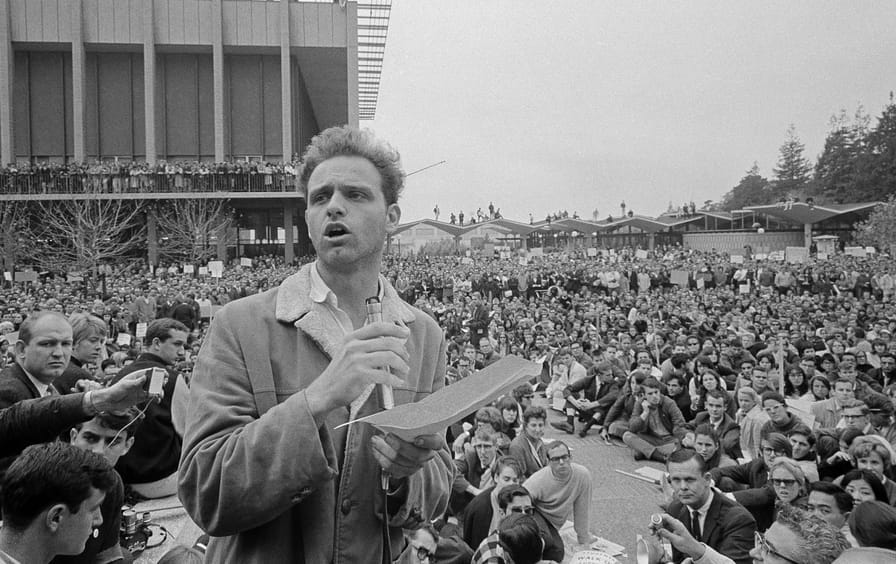Mario Savio
Mario Savio was a key figure in the American civil rights movement, best known for his leading role in the Free Speech Movement (FSM) at the University of California, Berkeley, in the 1960s.
Born on December 8, 1942, in New York, Savio grew up in a Roman Catholic family of Italian descent. His early life was marked by a deep sense of justice and an inclination toward activism.
Early Life and Education:
Savio was an exceptionally bright student, showing early signs of his intellectual capabilities. He attended a Jesuit high school, where he first demonstrated his strong principles and willingness to stand up for his beliefs. Despite his academic potential, he faced financial difficulties in pursuing higher education. However, he managed to secure a scholarship to study at the University of California, Berkeley, which was a turning point in his life.
The Free Speech Movement:
The Free Speech Movement began in 1964 as a response to the University of California, Berkeley's administration banning the distribution of political literature on campus grounds. This policy was seen as a direct infringement on students' rights to free speech and academic freedom. Savio, along with other students, was galvanized by this policy into taking action.
Savio quickly emerged as a leading voice in the FSM, known for his eloquent and impassioned speeches. On December 2, 1964, he delivered his most famous speech on the steps of Sproul Hall, where he declared, "There's a time when the operation of the machine becomes so odious, makes you so sick at heart, that you can't take part; you can't even passively take part, and you've got to put your bodies upon the gears and upon the wheels, upon the levers, upon all the apparatus, and you've got to make it stop." This speech became emblematic of the FSM and the broader student movement of the 1960s.
Impact and Legacy:
The FSM was a pivotal moment in the 1960s, highlighting the power of student activism and setting the stage for subsequent protests against the Vietnam War and for civil rights. Savio's leadership and his ability to articulate the frustrations and aspirations of his generation resonated with many young Americans.
Despite the significant attention and pressure, the FSM succeeded in its immediate goals. The University of California, Berkeley, administration eventually rescinded the ban on political activity, acknowledging the students' right to free speech and academic freedom.
After the FSM, Savio continued to be involved in activism but stepped back from the limelight. He struggled with the personal toll of his activism and sought to live a life away from public scrutiny. He continued his academic pursuits, eventually becoming a mathematics teacher.
Savio's health declined in his later years, and he passed away on November 6, 1996, at the age of 53. His legacy, however, lives on. Mario Savio is remembered as a symbol of the fight for free speech and the power of student activism. His contributions to the Free Speech Movement and its impact on American society are commemorated at UC Berkeley and by activists around the world.
The Free Speech Movement paved the way for future generations to stand up for their rights and beliefs, serving as a reminder of the impact that determined individuals can have on society. Savio's life and work continue to inspire those committed to social justice and the power of the spoken word to effect change.

